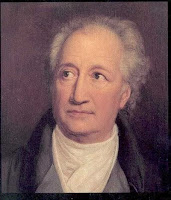
Puerile writing is
narcissistic and
histrionic.* In contrast, grown-up writing is
empathic and
sober.**
A brief example of puerile writingA few years ago,
Lamson Library at Plymouth State University (New Hampshire) upgraded its online catalog software. Recently I typed in a search term, not realizing that I had misspelled it. This is
the screen that came back:
Nothing FoundAck! We couldn’t find anything with those terms.
It’s not the end of the world, but we’re embarrassed about how empty the page looks.Critique of the exampleWhen an organization can’t fill a patron’s request, the standard grown-up response is “We’re sorry” (or a similar phrase). This sober, empathic response quietly conveys the organization’s regret that the patron has been disappointed.
But the author of the response messages in the
Lamson software does nothing of the kind. Instead, he makes a histrionic outburst:
“Ack!”This outburst narcissistically focuses attention on the author, not on the disappointed patron. Then the author explains specifically what happened:
“We couldn’t find anything with those terms.”Very good; that’s grown-up writing. But immediately the author slides back into puerile writing:
“It’s not the end of the world…”In other words, “It
doesn’t matter that your search was fruitless.” Now, obviously the software cannot possibly know how important a particular search may have been to a particular patron at a particular time. Nevertheless, the author of the programmed response message presumes to tell the patron that his search was not very important. The author continues:
“…but we’re embarrassed...”Here, finally, the author seems to be getting ready to express some kind of regret. However, he blows it immediately:
“… about how empty the page looks.”Instead of saying something like “that we could not help you this time,” he makes an inane comment. Once again he has
narcissistically turned the attention away from the patron and back to himself.
There is no more to the message. At this point in such a message, most organizations will try to
assist the visitor. For example, they may suggest checking the spelling of the search terms or widening the search. Or they may include a link to further information or to human assistance. But the author of the messages in the
Lamson software does not bother to offer assistance of any kind.
In summary, this is the message that the library patron receives: "We are fascinated with ourselves; we don’t care about you. And we get bored easily, so we like to add excitement to our work; if that confuses, distracts or irritates you, we don’t care."
A grown-up version of the exampleNothing Found
We're sorry, but we didn't find anything when we used your search terms. Please check the spelling of your search terms, or widen your search. For assistance, go to [link].
The Takeaway: If you confuse, distract or irritate your readers, you will probably be unable to deliver your message clearly. Puerile writing is confusing, distracting and
irritating. The cure for puerile writing is to imitate grown-up writing until it becomes a habit. Remember, grown-up writing is
empathic (it’s written to please the reader, not the author) and
sober (it
doesn’t inject false excitement into routine transactions).
See
disclaimer.
*Puerile writing is also
bloated and
palsy-walsy (thanks to
Ken Smith for promoting the latter term). We will discuss these additional characteristics in future posts.
**Grown-up writing is also
streamlined and
courteous. We will discuss these additional characteristics in future posts.








